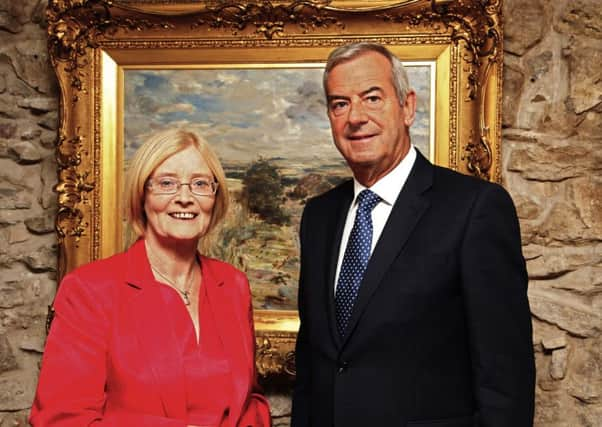John Swinney chosen for devolution team


He will join an academic, an ex-Scottish Secretary and two former party leaders on Lord Smith of Kelvin’s Scotland Devolution Commission set up after the independence referendum to help fulfil the pledge of the pro-UK parties to transfer “extensive” extra powers to the Scottish Parliament after a No vote.
Lord Smith, who headed the Glasgow 2014 Commonwealth Games committee, has been given a tight timetable to produce an agreed package by the end of November.
Each party has been asked to nominate two representatives.
Advertisement
Hide AdAdvertisement
Hide AdThe appointment of such a senior figure of Mr Swinney is a sign of how seriously the SNP is treating the commission.
The Conservative Party has nominated Professor Adam Tomkins, from Glasgow University’s School of Public Law, and former Scottish Tory leader Baroness Annabel Goldie.
The Liberal Democrats have put forward former Scottish Secretary Michael Moore and ex-Scottish Lib Dem leader Tavish Scott. Mr Moore said the talks must not result in “the lowest common denominator” of increased powers.
He added: “I want to see a federal United Kingdom.
“I’m not sure that we will quite achieve that in one bound, not least because it is also about how the rest of the United Kingdom wants to be part of that.”
Advertisement
Hide AdAdvertisement
Hide AdMr Scott said: “Politicians must not dither. This is an opportunity for people to come together across the political parties and drive the reform and change the country voted for.”
Lord Smith warned earlier this week it would not be easy to reach a deal and he could not force an agreement between the political parties.
No date has been set for the commission to hold its first meeting, but an insider suggested Lord Smith might decide to speed up the search for agreement by holding a series of discussions with each of the parties individually to clarify their positions before then calling them together for talks. The “extra powers” packages unveiled by each of the parties ahead of the referendum had some common elements but also differed significantly.
The most obvious problem to be resolved is that Labour’s final set of proposals includes giving Holyrood only partial control of income tax, whereas its original draft plan proposed the Scottish Parliament having full powers over income tax – a position both the Conservatives and Lib Dems now back.
Advertisement
Hide AdAdvertisement
Hide AdThe SNP has said the pledge from the other parties on extra powers – described variously during the campaign as “home rule” or close to federalism – has raised expectations among voters.
A Scottish Government spokesman said: “The onus is on the Westminster parties to live up to the self-styled vow they made to the electorate before the referendum.
“We have indicated we will be fully co-operative and constructive partners in the process under Lord Smith.
“We are not going to stand in the way of more powers coming to this parliament.”